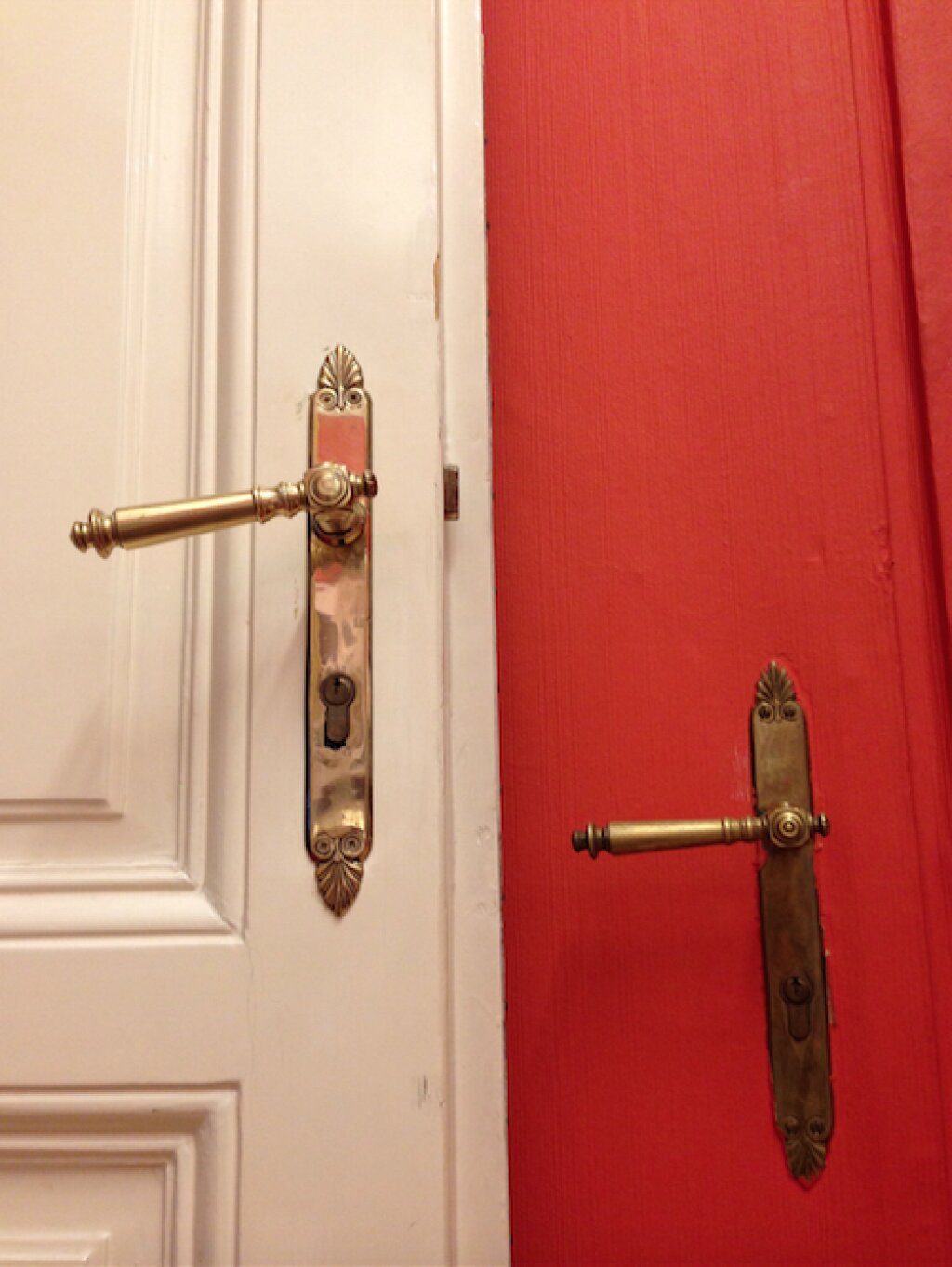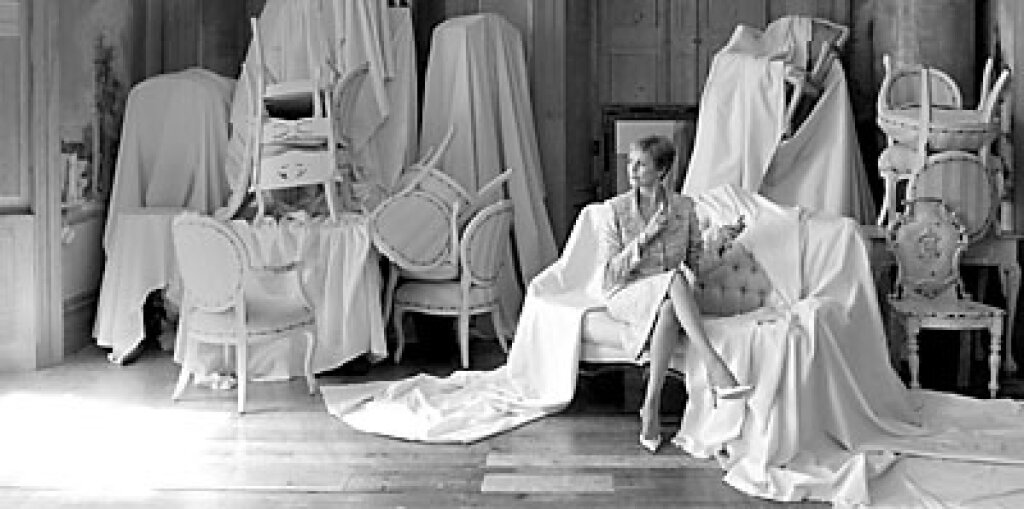I write this homage to Svetlana Boym from afar. The news of Svetlana’s passing found me, as many of her friends, too abruptly and too far to pay our homage in person today. Mourning her at a distance is restless and isolating; it makes her death seem unreal. Then I found myself falling back on three arts of living I learned from her—writing, walking, and picture taking. These are only three of the myriad gifts Svetlana, in her unbound vibrancy, creativity, and generosity, gave and, I found, keeps on giving. Yet for today, even sharing a sense of these gifts will probably overflow the limits of this homage.
Svetlana loved walks. One day in the mid 1990s, when I was an undergraduate at Harvard and made the last office hour appointment with her, she proposed we escape the office building and take a walk by the Charles River. It must have been the end of a long day for her, yet she was genuinely curious about what this new undergrad had to say. I was intimidated and tongue-tied, yet she got me right away. She gave me what I came to know was her hallmark type of advice, brilliant and cutting right to the core of the manner. Never a marginal comment. We also talked about our relative distance to the sky here and back where we had come from. I said something about how much further up the sky was at home, and she talked at length about the closeness and beauty of the Petersburg sky. Still she would not call it home, she said, and we talked about her book in the making then, The Future of Nostalgia.
In the meantime, we took many walks together, in Cambridge and New York. As she noticed, our registers got more and more mixed. Talk of our projects and reading and writing always took a lot of the time, interlaced as it was with our lives. Our last walk, less than a month ago, was her first outing in a while, and we felt it again as an escape, as well as a victory, a good omen. We made our way to the Radcliffe Quad, found two lounge chairs, pulled them in the shade. We sat together, relishing our brief togetherness, and talked about her current projects, which she was bustling with, as always. She had sent me the collection of short autobiographical stories that she wrote when she received her diagnosis and started the grueling treatment. I have to confess my guilty hesitation in approaching them right away. I feared their difficulty and pain, an encounter with a different Svetlana that would already spell the loss of Svetlana as I knew her. Yet when I finally opened them, there she was, on the page, full-voiced Svetlana, ironic and self-ironic, hilarious, humane, wise. I recognized the humanity and wisdom beyond years that had made her last book, Another Freedom, into a reading cure for me, beyond the sheer intellectual joy-ride all her previous books give the reader. She told me that she was getting really fascinated by Ukraine, countering the one-sided image of a country seen through the tragic prism of war by a layered history of alternative artistic communities, like Koktebel. She reminded me that her beloved Mandelstam wrote some of his best poems there, and told me you can’t fully get them until you know the place. For a second, she was again my teacher, and I relished the time travel.
We then talked about her short story, recounting the momentous decision to immigrate, made in a beer line on Koktebel by an eighteen year old. I commented on her stories’ rare tact and tenderness toward her parents. In “The Secret Life of a Communal Apartment Neighbor,” she wrote: “My parents have an exceptional record of half-a century of loving marriage, yet I didn’t spy on their intimacy. Most of all I remember is the texture of our partition. So much for the primal scenes and Victorian peeping Toms.” The paragraph reminded me of Nabokov’s brush with a primal scene in Speak Memory, which he ended abruptly: “Exit Sigmund Freud.”
Svetlana had a knack for when metaphors turned literal and back again, so we talked about the literal exit Freud used in his Vienna therapy office, now a museum we both loved: a little undersized red door, to the left of the door through which his patients entered their sessions. It was a door he used when the pain caused by his cancer interrupted the therapy sessions and made immediate self-treatment necessary. On his desk in the museum, a note keeps his observation about how writing is (a not always reliable) anesthetic. I promised I would send her the picture of the red door. I never got to do it in time, as so many other things I will be left to guiltily regret. She told me how much she would like the stories to have an echo, and appear together, as a collection. “It would give me pleasure,” she said. She then moved right on, to more projects, like her upcoming talk this fall at NYU, which she was already getting so much pleasure from through writing.
August 6, the first morning we woke without Svetlana among us, found me in the old Jewish Quarter in Bucharest, in a hotel room, with an archive day ahead of me. The previous day, upon finding the news of her passing, I had left the room in distress. A walk, I thought, would give me some space to mourn. The neighborhood appeared like a mise-en-scene of a description of Svetlana’s photoscapes in her story “Remembering Forgetting: Tale of a Refugee Camp:” “transit spaces,” “warzones” “ruins,” “the banal,” “the unmemorable,” and “the unmonumental.” I first came upon the once famous Jewish Theater. It appeared to be in ruin, with a poster of its star, Maya Morgenstern, missing an eye. Making my way to the museum of the Holocaust, housed in what my guidebook said was the resplendent 1846 grand Synagogue, I found it choked and dwarfed by a monstrous semicircle of decayed communist era apartment buildings. I took some photographs and then took my mourning home, but not before noticing a row of French doors on one apartment building: most had been stifled with mortar or metal sheets, but one had survived; its metal grid recalled a menorah for me. I brushed my association away as far fetched and decided not to take a photo of it. The next morning I woke up with the thought of the metal menorah and decided I had to go photograph it at the cost of being slightly late to the archive. I thought Svetlana would approve. She always approved of detours, of flanerie, which came with Baudelarian and Benjaminian pedigree, two authors she had learned to love from her dissertation advisor at Harvard, Barbara Johnson.
So I left my room and what had to be a five-minute detour turned into a few hours. I first passed the Jewish theater. The ornate metal door was open, and what I had taken for ruin turned out to be renovation. The guard who came to forbid me to photograph just needed a way to start a conversation. He had a passion for local history, and told me about the renovation of the Jewish theater, whose dramatic metal gate was now open to let workers in and out. I thought of Svetlana’s etymology of the “obscene” as “off-scene,” one of the many creative etymologies that she used to shake what we thought we knew and open up exhilarating new conceptual avenues.
Further down, the re-construction site of the old Jewish school allowed views of a soon to be covered miniature window, and a new sign spelled “escape”. As I pulled out my camera I thought of how much Svetlana had taught us to look at the “unmemorable” and “unmonumental.” I thought of her love of looking and reading, signage read as closely as poetry, surreptitious montage, transience, ruins and construction sites seen as “ruins in reverse.”
I had missed the entrance to the synagogue as its splendid entry is now barely visible because of the suffocating proximity of the communist era apartment building, which had instead attracted my attention. Born and raised in one, I’ve looked at communist apartment buildings with estranged interest ever since I read them decoded in Svetlana’s second book: Common Places: Mythologies of Everyday Life in Russia. But that morning, the synagogue courtyard was animated by a small group carrying on a conversation and the older guard warmly welcomed into the museum, the first visitor in over a month. Later, after he saw me pause at length in front of the poem board, the guard gently chided me for crying—“This is not for crying, miss, this is for understanding.” He assumed I was moved by Paul Celan’s poetry, but I had in fact discovered with a shiver the extraordinary poems of Selma Meerbaum, whose “Poem” started: “I’d like to live many more summers/To laugh and carry burdens/...To prop up the sky with my hands/.” And here is another fragment, from “August:” “It suddenly got cold/And I stand/Unreal/Like a ghost/Empty/And the rain passes/Like me/Far away/Close by/”
“Mixing registers.” On the way out, a moment of urban comic relief that Svetlana would not have missed: an empty, broken beer case chained carefully to a drain. And throughout the walk, the verses from Marina Tsvetaeva that Svetlana chose from in titling her first book “I put life and death in quotation marks/ like fabrications known to be empty.” She chose to call her first book Death in Quotation Marks. Yet as much as she loved quotation marks, the friction between the literal and the figurative, Svetlana did not put life in quotation marks. She lived it to the fullest, with intelligence, courage, and humaneness.
All photos by the author







